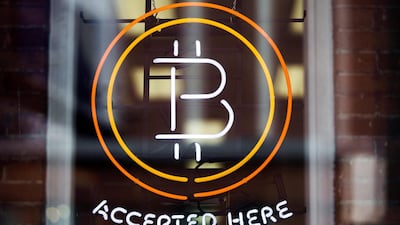Falcon Private Bank, the Mubadala Investment Company-owned Swiss bank with U$15 billion in assets under management, is advising clients to increase holdings of alternative assets like gold, real estate and even cryptocurrencies, amid signs that global bond and equity market were showing signs of overvaluation following years of low interest rates and financial stimulus from the world's major central banks.
"The broader phenomenon is how is the world going to deleverage from all the stimuli?" Martin Keller, the bank's chief executive officer, told The National. "How much has gone into the underlying economy and how much has gone into financial markets and creating market bubbles and that's the dilemma we need to try and solve. I am cautious on equity valuations and I think it's fair to assume that a correction is due."
Global stock and bond markets have neared record highs this year amid stimulus measures by central banks and low interest rates that were put in place in the aftermath of the 2008 financial crisis.
In recent weeks the S&P500, the benchmark gauge of US equities, hit a fresh all-time high on Thursday, having gained nearly 14 per cent so far this year. Such rises in the US and elsewhere have prompted concern among a number of billionaire investors such as Warren Buffet that valuations are not cheap.
Falcon, which is owned by Aabar Investments, itself owned by Abu Dhabi's Mubadala Investment, is focusing on growing its business in the Middle East, Africa, and Europe where it gets two thirds of its business, said Mr Keller, who last month replaced Walter Berchtold as the bank's chief executive.
Even though economic growth may be slowing on the back of falling oil prices, the UAE still boasts one of the highest concentrations of millionaires in the world and increasingly one of the highest concentrations of private banks.
Swiss private banks are making a sprint for the region in a bid to tap into such wealth. But many of the country's banks are struggling with increased costs following a series of fines from regulators, with higher compliance costs putting pressure on margins.
That pressure on costs has made the industry ripe for mergers and buyouts and increased the urgency for smaller banks such as Falcon to distinguish themselves by offering investments that others cannot. Falcon touts itself as a niche player in the industry, bringing bespoke solutions that include unconventional investments such as those in cryptocurrencies.
“Competition here and elsewhere is intense,” Mr Keller said. “Capacity-wise, the world doesn’t need too many more banks. So the competition within the space is tough and you have to work hard to differentiate yourself in an environment with low to negative interest rates.”
There are more than 60 private banks operating in the Arabian Gulf, with the majority of them based in Dubai.
Falcon began life in Zurich in 1965 as Ueberessbank and was renamed AIG Private Bank in 1998.
After International Petroleum Investment Company (Ipic), an Abu Dhabi sovereign wealth fund, bought the bank in 2009, its name was changed to Falcon.

